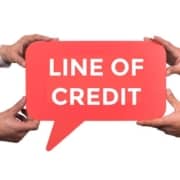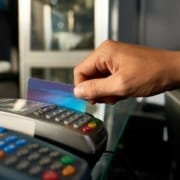What is an Unsecured Business Line of Credit?
Running a business requires access to capital to manage cash flow, cover unexpected expenses, or facilitate growth and expansion. An unsecured business line of credit is a form of financing that can help businesses operate and grow. A line of credit provides businesses flexible access to funds, allowing them to borrow as needed up to a predetermined limit.
An unsecured business line of credit doesn’t require collateral, allows borrowers to withdraw the funds they need, and gives borrowers more control over repayment options. In this article, we’ll explore how an unsecured business line of credit works, its benefits, how it compares to secured lines of credit, and how to qualify for one.
How Does an Unsecured Business Line of Credit Work?
An unsecured business line of credit offers access to revolving credit, much like a business credit card. Once approved for a line of credit, business owners can withdraw funds up to a predetermined limit at any time. You only pay interest on the amount of money you draw, and as you repay what you’ve used, that credit is available to borrow again.
While credit cards can be used for as long as your account is in good standing, a business line of credit has a draw period lasting two to three years during which you can make withdrawals. Repayment terms and rules can vary significantly based on your lender; however, it’s common for the draw period to be followed by a repayment period during which borrowers make monthly payments to repay what they owe.
Unlike a secured line of credit, an unsecured line of credit requires no collateral. Lenders will evaluate creditworthiness and determine a credit limit and interest rate based on the applicant’s personal and business credit scores. Lines of credit usually charge a variable interest rate, unlike loans where the interest rate is fixed. This means that interest rates may rise or fall as the market (and Federal funds rate) evolves. Even so, a high credit score opens the door to better lending terms and rates, while a low score may mean you’re offered a higher interest rate.
Benefits of an Unsecured Business Line of Credit
Many business owners take out secured loans when they need financing, but an unsecured business line of credit may be the more useful and flexible option. Here are some benefits of an unsecured line of credit:
- No collateral required: Unlike with a secured lines of credit, collateral is not required. This means business owners don’t have to risk their personal or business assets to secure financing.
- Flexibility: Business owners have the flexibility to borrow exactly the amount they need when they need it. They can draw funds as needed, up to their approved limit, without having to reapply for additional financing each time.
- Lower interest rates than credit cards: Unsecured lines of credit typically have lower interest rates compared to business credit cards, making them a cost-effective (but temporary) alternative to business credit cards.
- Limited interest charges: Business lines of credit charge you interest only on the amount you’ve drawn. If your credit limit is $250,000 and you’ve only drawn $25,000, you’ll only be charged interest on your $25,000 withdrawal. On the other hand, with a term loan, you’ll pay interest on the entire loan principal.
Drawbacks of an Unsecured Business Line of Credit
As with any type of business financing, an unsecured line of credit isn’t the best option for every small business. Here are drawbacks of unsecured lines of credit:
- Higher interest rates than secured lines of credit: While unsecured lines of credit generally have lower interest rates compared to business credit cards, they often carry higher interest rates than secured lines of credit.
- Tough qualification requirements: While secured lines of credit factor collateral into qualification requirements, in this case eligibility depends on your personal credit, business credit, revenue, and time in business, among other factors.
- More Difficult to Qualify: Without collateral, lenders may set tougher eligibility requirements for each of those factors.
- Lower limits: Unsecured lines of credit usually come with lower credit limits compared to secured options. This can be an issue for businesses that need larger sums of cash to finance operations and growth.
- Potential for credit score impact: Because many unsecured business lines of credit require your personal credit score to qualify, missing payments on the line of credit could affect your credit.
Who Should Get an Unsecured Business Line of Credit
Unfortunately, there’s no one-size-fits-all approach for determining whether or not an unsecured business line of credit is best for any business. Instead, business owners need to assess their business and both the benefits and drawbacks of an unsecured line of credit. Generally speaking, established businesses with consistent revenue and good business credit are ideal fits for an unsecured line of credit. This means that small businesses that are new, have inconsistent revenue, or have no established business credit may not be suited for this type of financing. Business owners should also factor in the financial standing of the business before applying for any financing.
Secured vs Unsecured Line of Credit
A secured line of credit offers the kind of flexible access to funds that many business owners are seeking, but applicants typically borrow against the value of the collateral they provide. Collateral could be real estate, inventory, equipment, or vehicles. Providing collateral can make a difference to the borrowing limits and rates you are offered. Here are some important factors to consider if you’re weighing the benefits of an unsecured business line of credit against a secured alternative.
- Unsecured business line of credit
- Collateral Requirements
- Interest Rates
- Credit Limits
- Approval Odds
- Application Process
- Risks Involved
- Unsecured business line of credit
- Not required, but borrowers must have acceptable credit scores.
- Interest rates may be higher due to the lack of collateral.
- Credit limits may be lower.
- Odds of approval depend on the applicant’s credit scores. Good credit improves the odds.
- The process is usually short and uncomplicated.
- Defaulting usually results in credit damage. If the business owner provided a personal guarantee, they’ll need to pay off the debt using personal funds.
- Secured Business Line of Credit
- Required. Collateral can be a car, property, inventory, equipment, or even stocks or bonds.
- Interest rates may be lower as the lender incurs less risk.
- Credit limits can be higher since they’re usually linked to the value of the collateral.
- Higher odds of approval since borrowers incur more risk.
- Lenders must appraise the collateral which can make the application process longer.
- Lenders typically seize the collateral if the business owner defaults on payments.
How to Get an Unsecured Business Line of Credit
Once you’ve determined that an unsecured business line of credit is the right choice for your business, you can apply for one following these steps.
1.Evaluate Your Business’s Needs and Credentials
Check your business credit score, operational history, and financial standing to gauge your eligibility. You’ll also want to determine the amount of financing you need. Consider your business needs and expenses to arrive at a figure that makes sense. Bear in mind that you won’t necessarily be maxing out your line of credit.
2.Compare Unsecured Business Lines of Credit and Lenders
Research different lenders and compare their offerings, including interest rates, credit limits, and repayment terms. Don’t forget to compare fees, including origination fees, late payment fees, maintenance fees, etc. It’s also a good idea to research the quality of service that different lenders offer. Consider factors such as customer service, reputation, and online reviews when choosing a lender.
3.Gather the Required Documents and Apply
Prepare necessary documentation, including financial statements, tax returns, bank statements, and business plans. Application requirements may differ from one lender to the next, so feel free to ask about what a complete application should include.
Most lenders offer a streamlined online application process that helps save time and energy. But don’t hesitate to contact your lender’s customer service team if you have doubts or questions.
4.Review Your Offer, Accept the Terms and Sign
Once you receive your line of credit offer from the lenders, carefully review the terms and conditions, including interest rates, fees, and repayment terms. Accept the offer only if it suits your business’s needs. Find out if your lender offers a cooling-off period during which you can cancel the application without consequence if you change your mind.
Unsecured Business Line of Credit Qualification Requirements
Lenders may place strict requirements on business owners seeking an unsecured business line of credit. As with any unsecured form of credit, the lender incurs more of the risk, so they’re more likely to be highly selective about whom they issue credit to. Here are a few factors that lenders may consider when evaluating your eligibility and creditworthiness.
- Business credit score: Many lenders require a minimum business credit score, though the exact figure can vary. Generally, the higher your credit score, the more credit options you have available to you.
- Personal credit score: Your personal credit score may also be considered, especially for newer businesses or smaller lines of credit.
- Time in business: Lenders may require your business to have been operating for a certain period, often at least two years.
- Bank statements: Business lenders may require up to six months of bank statements to verify the financial health of the business.
- Financial statements: You may need to provide financial statements, including income statements, balance sheets, and cash flow statements. These documents give your lender a picture of your money management skills and business costs.
Unsecured Business Line of Credit FAQs
Is it hard to get an unsecured business line of credit?
Obtaining an unsecured business line of credit can be more challenging compared to a secured line of credit. Lenders typically have stricter eligibility criteria due to the higher risk involved. However, business owners can work to improve their credit scores to improve their odds of approval.
Can a small business get an unsecured line of credit?
Yes, small businesses can qualify for unsecured lines of credit, but they may need to demonstrate a two-year operational period, a strong credit history and good financial standing.
Can a new business get an unsecured business line of credit?
While it’s possible for a new business to get an unsecured business line of credit, it can be more difficult. New businesses may need to rely more heavily on their personal credit history and provide additional documentation to prove their creditworthiness.







